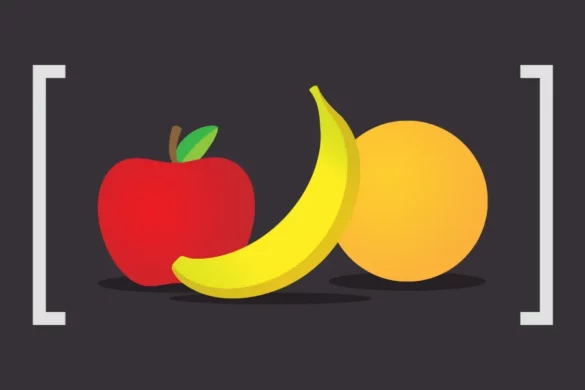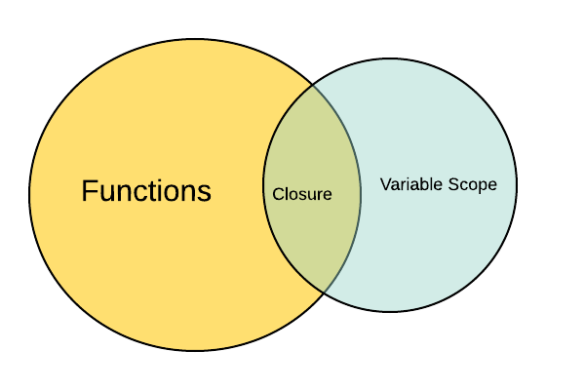Table of Contents
In today’s digital age, the demand for skilled React developers is skyrocketing. React, a popular JavaScript library developed by Facebook, has gained immense popularity among developers and companies alike. Its simplicity, flexibility, and efficiency make it a top choice for building modern, interactive web applications. As a React developer, you can enjoy a rewarding and lucrative career with abundant opportunities for growth and success.

The Rise of React
React has revolutionized the way web applications are built. Its component-based architecture allows developers to create reusable UI components, resulting in faster development cycles and improved code maintainability. With React, developers can efficiently handle complex user interfaces and seamlessly manage data flow within applications.
Why Choose a Career as a React Developer?
React is a widely-used JavaScript library developed by Facebook, known for its efficiency and flexibility in building user interfaces. As a React developer, you’ll have the opportunity to work on cutting-edge projects and shape the digital experiences of millions of users. The demand for React developers is driven by the library’s ability to create reusable UI components, optimize performance through virtual DOM, and its extensive ecosystem that facilitates rapid development.
Why React Development is in High Demand?
The demand for React developers is skyrocketing across industries for several reasons. Firstly, React allows developers to create reusable UI components, saving time and effort in the development process. Secondly, React’s virtual DOM efficiently updates and renders only the necessary components, resulting in faster and smoother user experiences. Lastly, React’s extensive ecosystem and strong community support make it a preferred choice for many organizations.
Collaboration and Networking
As a React developer, you’ll have the opportunity to work closely with diverse teams and professionals. React is widely adopted by companies worldwide, fostering a thriving community of developers, designers, and entrepreneurs. Engaging with this community can lead to valuable connections, learning opportunities, and career advancement.
Attending React conferences, participating in online forums, and contributing to open-source projects are excellent ways to establish your presence within the React community. Networking with like-minded professionals can open doors to exciting projects, job offers, and collaborations.
Essential Skills for React Developers
To thrive as a React developer, there are several key skills you need to master. Firstly, a strong foundation in JavaScript, HTML, and CSS is essential, as React is built upon these technologies. Additionally, a deep understanding of React’s component-based architecture, state management libraries (such as Redux), and proficiency in working with APIs are vital. Familiarity with build tools like Webpack and Babel is also beneficial.
Career Paths for React Developers
React developers enjoy diverse career paths and opportunities. You can join established companies as an in-house developer, working on large-scale projects with multidisciplinary teams. Another option is to work for digital agencies specializing in web development, where you can gain exposure to a variety of projects and clients. Freelancing is also a viable path, allowing you to work independently and take on projects from around the world.
High Demand and Competitive Salaries
As React continues to dominate the web development landscape, the demand for skilled React developers is at an all-time high. Companies of all sizes, ranging from startups to tech giants, are actively seeking talented React developers to build and enhance their web applications.
Due to the scarcity of experienced React developers, the job market is highly competitive, resulting in attractive salary packages and benefits for professionals in this field. React developers are often offered substantial compensation, reflecting the value they bring to organizations. The average annual salary for React developers in the United States ranges from $80,000 to $120,000, depending on factors such as experience, location, and company size. Senior React developers with several years of experience can earn well over $150,000 per year.
Freelancing as a React Developer
Freelancing provides React developers with unique opportunities for flexibility and autonomy. As a freelancer, you have the freedom to choose your projects, set your rates, and work remotely. Many businesses and startups are seeking React developers to bring their ideas to life. Freelancing allows you to expand your portfolio, gain diverse experience, and build a solid reputation in the industry.
Versatility and Marketability
React’s versatility extends beyond web development. With React Native, developers can leverage their existing React skills to build cross-platform mobile applications for both iOS and Android. This opens up even more career opportunities, as the demand for mobile app developers continues to grow.
Furthermore, React’s popularity ensures that your skills remain relevant and marketable. The vast ecosystem surrounding React, including a wide range of libraries, tools, and frameworks, provides endless possibilities for professional growth and specialization. By staying up-to-date with the latest React trends, you can position yourself as a sought-after expert in the industry.
Here are just a few examples of the diverse applications and use cases where React shines. Its versatility, performance, and strong developer community make it a popular choice for web and mobile development across various industries.
- E-commerce Platforms: React is widely used in building e-commerce platforms where dynamic and interactive user interfaces are crucial. With React, developers can create product catalogs, shopping carts, and seamless checkout experiences.
- Social Media Applications: React’s component-based architecture makes it an excellent choice for developing social media applications. Features like news feeds, user profiles, notifications, and real-time updates can be efficiently implemented using React.
- Collaborative Tools: React’s reusability and modular nature make it ideal for collaborative tools such as project management platforms, team communication apps, and shared document editors. React enables developers to create responsive and interactive interfaces that enhance collaboration.
- Data Visualization: React can be combined with data visualization libraries like D3.js to create powerful and interactive visualizations. This is useful in domains such as data analysis, business intelligence, and reporting, where presenting complex data in a user-friendly manner is essential.
- Gaming Applications: React can be used in conjunction with game development frameworks like Unity to build web-based gaming applications. React components can handle user interfaces, while the game logic and rendering are managed by the underlying framework.
- Educational Platforms: Online learning platforms can benefit from React’s ability to create engaging and interactive user interfaces. React components can be used to deliver course content, facilitate discussions, and track progress for learners.
- Real-Time Dashboards: React’s efficient rendering and state management make it well-suited for real-time dashboards and monitoring systems. Developers can use React to build responsive dashboards that display real-time data and provide visual feedback.
- Mobile Applications: React Native, a framework based on React, allows developers to build cross-platform mobile applications using JavaScript. With React Native, you can write code once and deploy it on both iOS and Android platforms, saving time and effort in mobile app development.
- Progressive Web Apps (PWAs): React is an excellent choice for developing PWAs, which are web applications that can be installed and used like native apps. React’s component-based architecture and performance optimizations contribute to creating fast, reliable, and engaging PWAs.
- Internet of Things (IoT): React can be utilized in IoT applications for building user interfaces to control and monitor connected devices. Whether it’s a smart home application or an industrial IoT system, React can provide a responsive and intuitive interface.
Advancements and Future Trends in React Development
React development is continuously evolving, with new features and improvements being introduced regularly. React Native, for example, enables developers to build mobile applications using React, opening up even more career opportunities. Additionally, advancements in server-side rendering, performance optimization techniques, and integration with other frameworks and libraries contribute to the growth of React as a dominant force in web development.
Tips for Starting a Successful React Developer Career
If you aspire to embark on a successful React developer career, consider the following tips:
- Continuous Learning: Stay updated with the latest React trends, attend conferences, and participate in online communities to expand your knowledge.
- Build a Strong Portfolio: Showcase your skills by creating and maintaining a portfolio of impressive React projects. It will serve as a testament to your abilities and attract potential employers or clients.
- Collaborate and Network: Engage with other developers, join open-source projects, and collaborate on GitHub to gain valuable experience and expand your professional network.
- Stay Agile: React development often involves working in agile environments. Familiarize yourself with agile methodologies and practices, such as Scrum or Kanban, to adapt quickly to changing project requirements.
Conclusion
Becoming a React developer opens doors to a rewarding and promising career. The demand for React expertise continues to rise, providing ample opportunities for skilled developers to secure high-paying positions. Whether you choose to work in an established company, pursue freelance projects, or explore the advancements in React development, the possibilities are vast.
So, if you’re passionate about web development and love creating interactive user interfaces, consider diving into the world of React. The journey as a React developer promises not only financial success but also the satisfaction of building captivating web experiences.
FAQs
How long does it take to learn React?
The time required to learn React depends on your prior experience and dedication. With a solid understanding of JavaScript and web development concepts, you can start building React applications in a few weeks. However, becoming proficient and comfortable with advanced React features may take several months of practice and hands-on experience.
Can I become a React developer without a computer science degree?
Absolutely! While a computer science degree can be beneficial, it is not a strict requirement to become a React developer. Many successful React developers are self-taught or have acquired their skills through coding bootcamps, online courses, and practical projects. Focus on building a strong React portfolio to showcase your abilities and increase your chances of securing opportunities.
Is React only used for web development?
No, React is not limited to web development. With React Native, you can use the same React concepts to build mobile applications for iOS and Android platforms. React Native allows you to leverage your existing React skills and codebase to create native-like mobile experiences.
What is the difference between React and React Native?
React and React Native are both developed by Facebook and share similar concepts. However, React is primarily used for building web interfaces, while React Native is specifically designed for mobile app development. React Native uses native components, allowing you to create applications that look and feel like native apps on each platform.
How can I keep up with the latest React trends and updates?
To stay up-to-date with the latest React trends, follow reputable React blogs, join online communities like Reddit and Stack Overflow, and subscribe to newsletters and YouTube channels dedicated to React. Additionally, attending React conferences and participating in webinars can provide







Add your first comment to this post